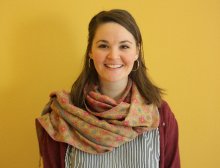Zahara Zahav
The four propositions that Sid suggests will shape and inspire meaningful, relevant Jewish communities today contain strong echoes of central themes found in the traditional wisdom of the Torah. Chochma, kedusha, tzedek and kehillah are rooted in the famous mishnah of Pirkei Avot 1:14: Shimon the Righteous who said, “On three things the world stands: On Torah, on service of Gd, and on acts of sacred kindness.” The outlined propositions seem to correspond well with Shimon the Righteous’ pillars that uplift and support our world. More explicitly, Torah (Wisdom /Chochma), Avodah (Kedusha /Lives of Sacred Purpose), and Gemilut Hasadim (Tzedek /Justice), each explored through Kehillah, will continue to be the foundation of Jewish life in the next millennia as they have been for centuries.
Jewish life is enriched through the intersection of these key areas/pillars. Additionally, by creating a vibrant Jewish life in which chochma, kedusha, tzedek, and kehillah all thrive and support one another, each individual area is enlivened; the cross-pollination and overlap between areas of faith and practice make Judaism, both on an individual and communal level, stronger and more wholly transformative. The Jewish community at large is filled with spaces where these areas are off balance, pushing many Jews to piece together a holistic identity through a variety of worlds and underscoring disconnection between faith and practice. Our tzedek, our chochma, our kedusha, our kehillah, suffer from this disconnection.
Recently I have begun to experience a kind of integration among these areas and thus within myself as I interact with the political and religious Jewish communities in New York City. It has taken years and will continue to take a long time, as silos can be very challenging to break down. Modern radical politics have uplifted identity exploration and particularism in ways that encourage politicized Jews to know their own histories and traditions. (White supremacy, James Baldwin and others suggest, is in part upheld by the absence of this knowledge. Christian hegemony, Paul Kivel writes, also benefits when non-Christians can’t make distinctions between the dominant religious culture and their own) Meanwhile, activist culture continues to highlight connections between the wellbeing of the spirit and the wellbeing of the world, I’ve begun to see far greater room within tzedek– and kehillah-focused spaces for chochma and kedusha. Additionally, spaces that are chochma– and kedusha-centered are beginning to see their work as toothless when it does not rise up to meet the questions and hunger of growing social movements.
Therefore, if I were to suggest an area beyond Sid’s thesis, it would be the focal point at which the four areas meet in a powerful core, thus emanating outward with vibrancy and resonance. This is the location of my life’s work, a return to the original thesis set out in my mind by the Torah.
____________
Zahara Zahav is the National Campaign Organizer at the Union for Reform Judaism. An alumnus of the Pardes Institute and of Yeshivat Hadar, Zahara is dedicated to building spiritually and politically awake Jewish spaces. As an AVODAH fellow, Zahara worked as a program and development associate at Footsteps, an organization for people transitioning out of the ultra-Orthodox community. She is a former Program Manager and Network Organizer of Rabbis Without Borders at Clal.


